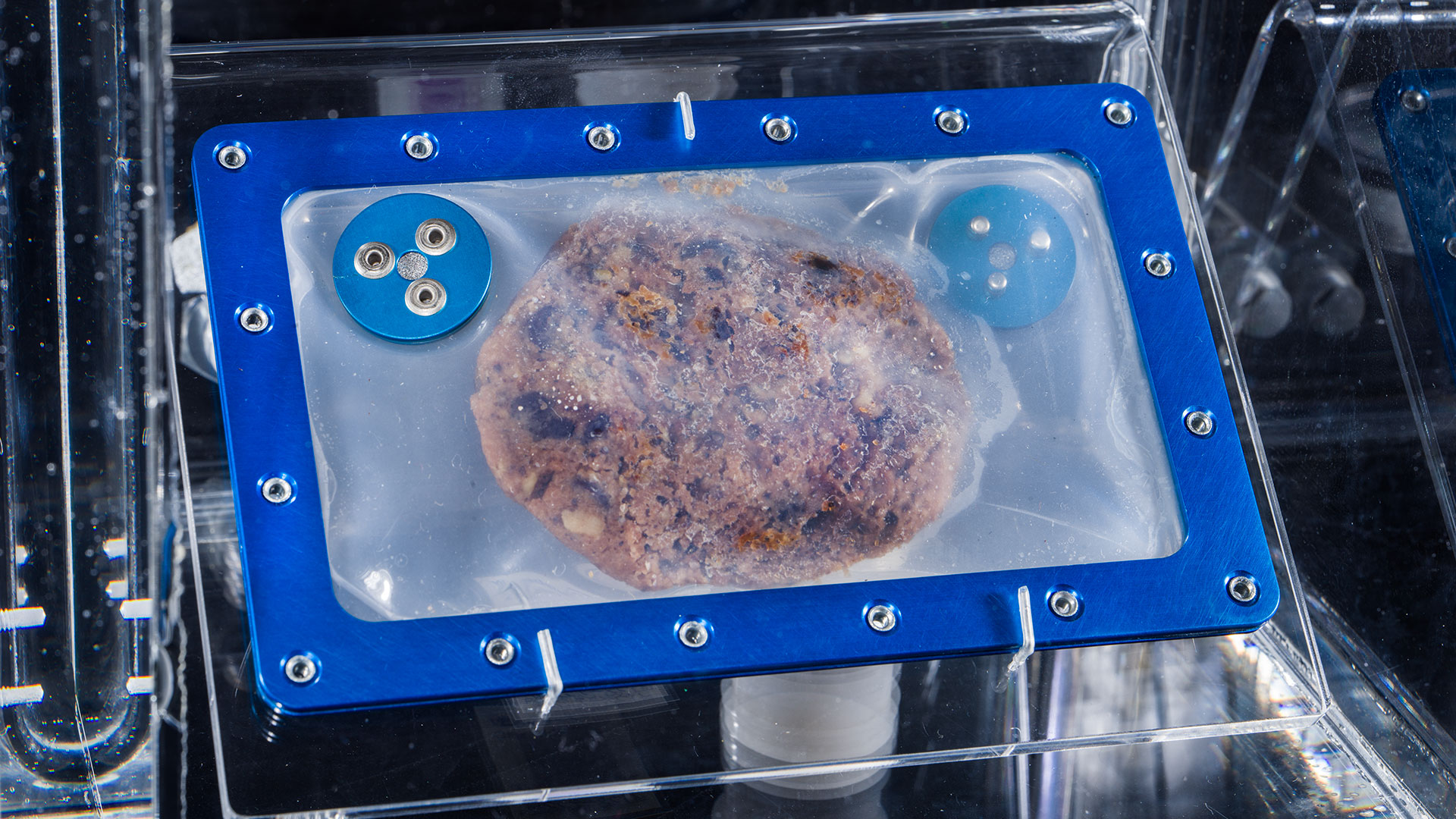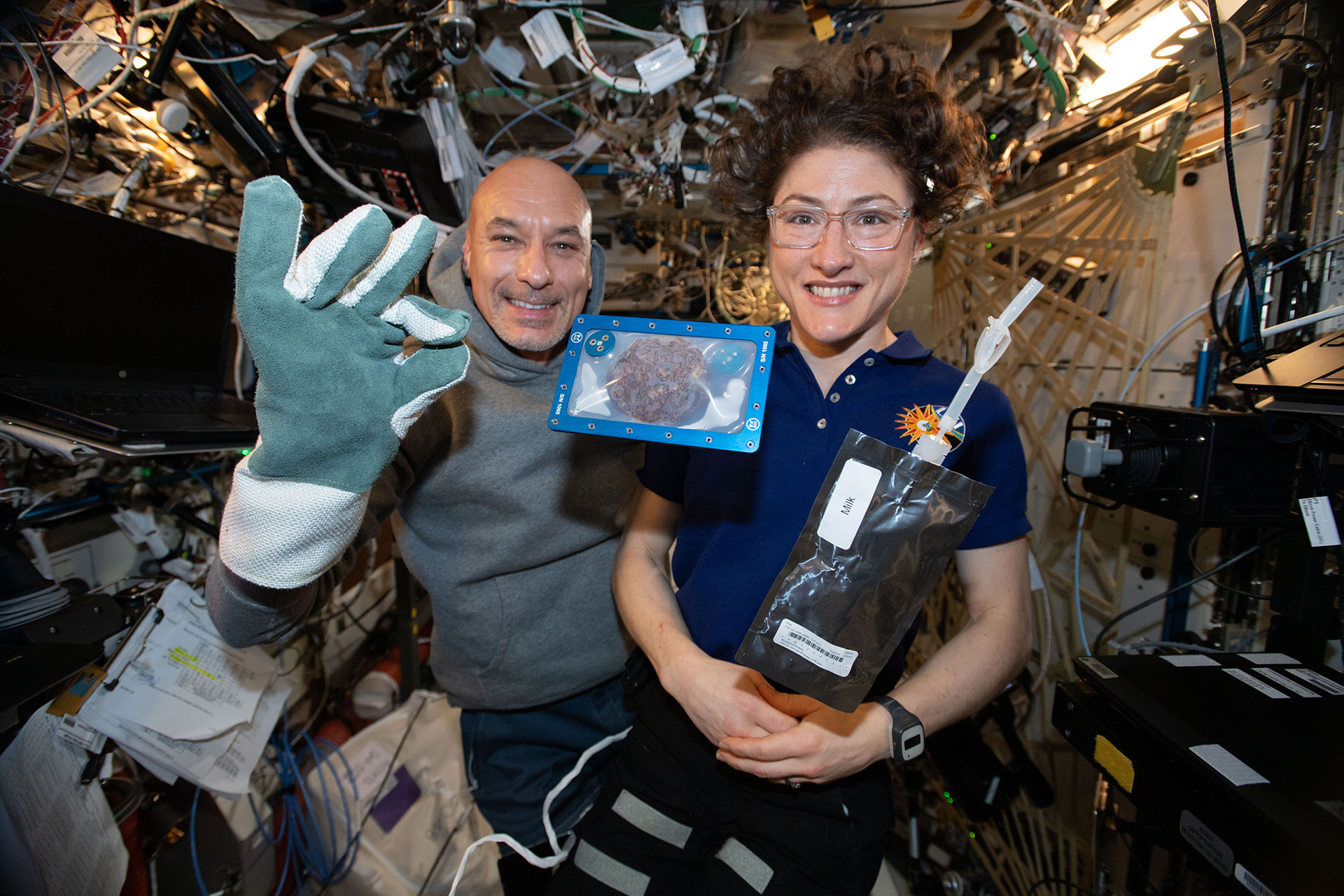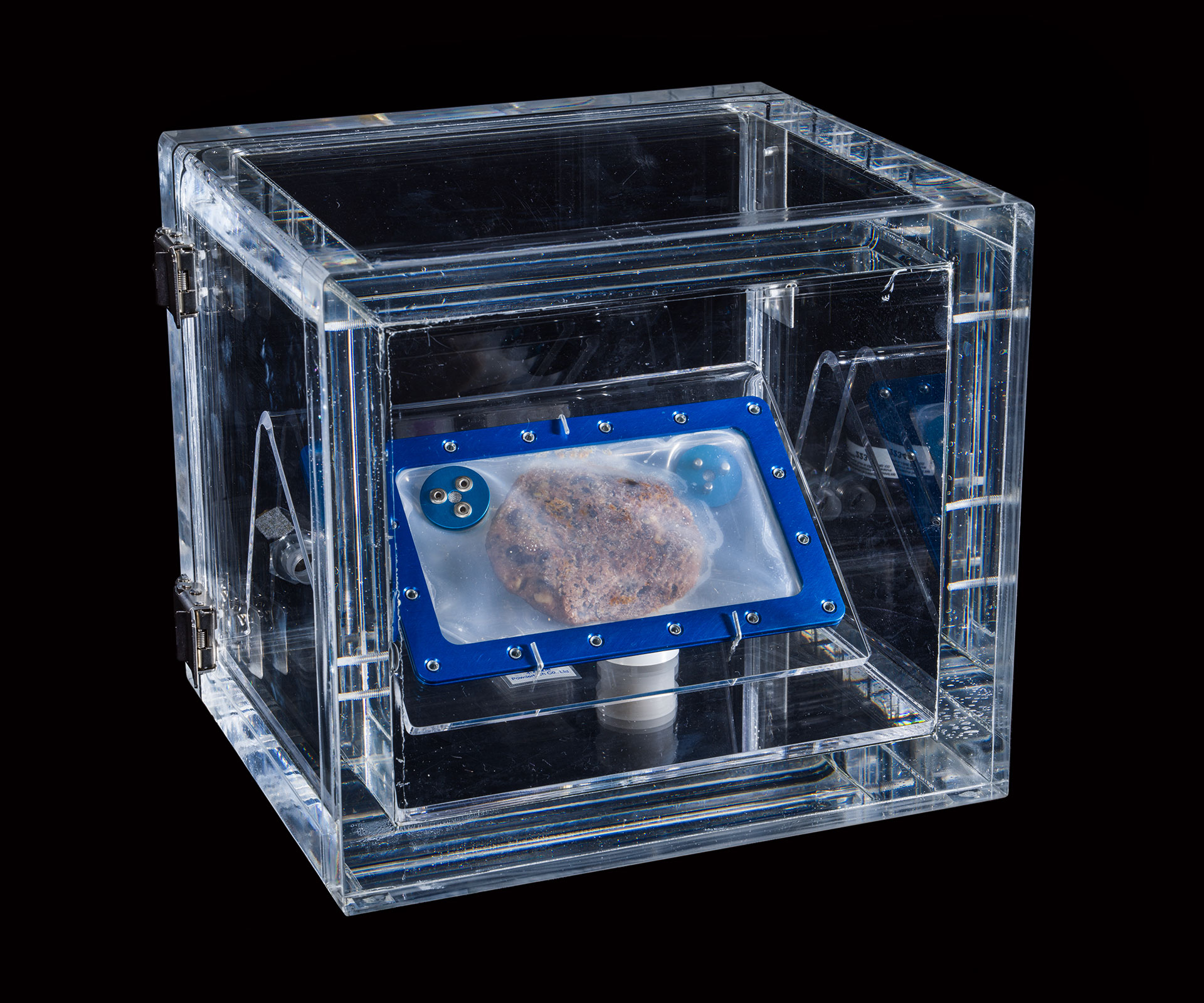
It has been almost four and a half years since it was made in outer space, but if you could smell it today, you'd find it still retains the distinctive whiff of a DoubleTree Cookie.
The world's first food item baked in space, the cookie debuted on display at the National Air and Space Museum's Steven F. Udvar-Hazy Center in Chantilly, Virginia on Wednesday (May 8). Made from a similar recipe to the chocolate chip treats given to guests staying at DoubleTree by Hilton hotels, the cookie has been preserved as close to the condition it was in when it came out of a specially designed microgravity oven on the International Space Station in November 2019.
"I can tell you it does still smell like a baked cookie," Jennifer Levasseur, museum curator in the Department of Space History at the Smithsonian's National Air and Space Museum, said in an interview with collectSPACE.com. "I wish that the smell test could be available to everybody."
To do so, though, would risk introducing moisture and then mold. To preserve the cookie on display, it is exhibited within a custom-built enclosure that holds it and its original silicon sleeve within a pure nitrogen environment. Otherwise, just like any other baked good, it would not have nearly as long a shelf life.
"Because it's in this special enclosure, nobody can smell the cookie now, which is probably for the cookie's benefit because if you were able to smell it that would mean that there might potentially be oxygen penetrating it, and then we'd be going in a direction we don't want to go," said Levasseur.
Related: Food in space: What do astronauts eat?

The cookie was donated by Hilton, together with the in-space services company Nanoracks (now part of Voyager Space) and the startup Zero-G Kitchen. In 2019, the three organizations worked together to launch to the space station an oven that could operate in the microgravity environment. Since hot air does not rise in space, the Zero G Oven worked by using electric heating elements that were placed around a cylindrical chamber, so that a pocket of heated air surrounded the food at its center.
The silicon pouch exhibited with the cookie was originally used to hold the dough in place inside the oven and constrained any crumbs from coming loose.
It took several tries before astronauts Christina Koch of NASA and Luca Parmitano of the European Space Agency (ESA) figured out the right temperature and time to produce the best result.
"We have the fifth of the cookies baked," Levasseur told collectSPACE. "This was the final version that they feel got closest to the actual texture that you would want to bake a cookie to."
Returning to Earth in a freezer in early 2020, the cookie remained frozen until it could be delivered to the Smithsonian. (It then shipped to the museum in dry ice.)
"We needed to defrost it," said Levasseur. "So the conservation team did some experiments ahead of time, re-making the recipe and then testing for how long they would need to desiccate it and under what conditions would we need to store it so that we would never have to worry about mold becoming an issue."

More than an interesting example of artifact preservation, the baked cookie now represents the work being done to try to make long-duration space missions more enjoyable and sustainable for future crews.
"Hospitality and innovation are two strands of Hilton's DNA," said Shawn McAteer, brand leader for DoubleTree by Hilton, in a statement. "We are beyond honored to be the first hospitality company involved in historic research aboard the International Space Station and to now have the DoubleTree cookie on display in the Smithsonian."
"When people hear the DoubleTree cookie was the first item successfully baked in outer space, we hope they not only celebrate the experiment, but get an understanding that DoubleTree is deeply committed to providing warm and caring service, all starting with our signature welcome and iconic chocolate chip cookie," said McAteer.
Visitors to the Udvar-Hazy Center can find the cookie on display near the entrance to the James S. McDonnell Space Hangar, exhibited alongside other food items prepared for use in space. In a few years, the cookie will be moved to the National Air and Space Museum's flagship building in Washington, D.C., where it become part of the new gallery "At Home in Space" opening in 2026.
"It will reside next to other items related to food consumption inside our recreation of the [International Space Station's] Destiny laboratory module," said Levasseur.
Follow collectSPACE.com on Facebook and on Twitter at @collectSPACE. Copyright 2024 collectSPACE.com. All rights reserved.







